
A while back I posted about horses in urban settings, something which most horse lovers find sad. The noise, pollution & stress of the city makes it a really bad place for such a sensitive animal.
That said, there are still plenty of cultures that use horses for transportation even today and their integration with asphalt is a necessary evil in many circumstances.
There is something incredibly powerful about each image – the photographers really captured the idea of an animal out of its element.
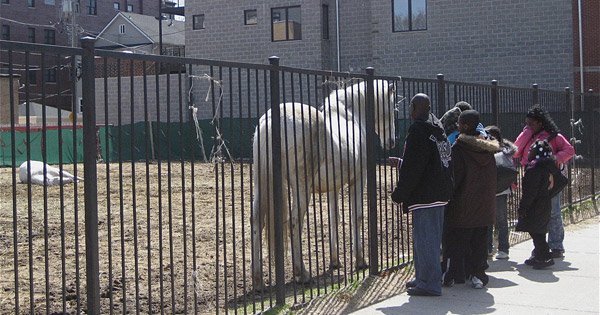
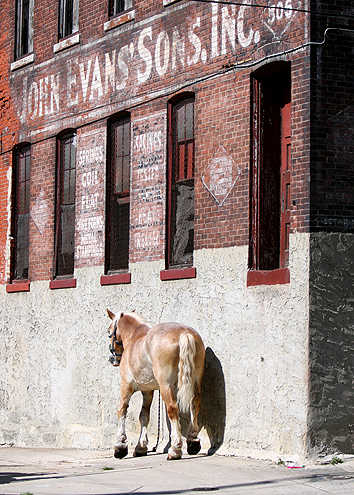
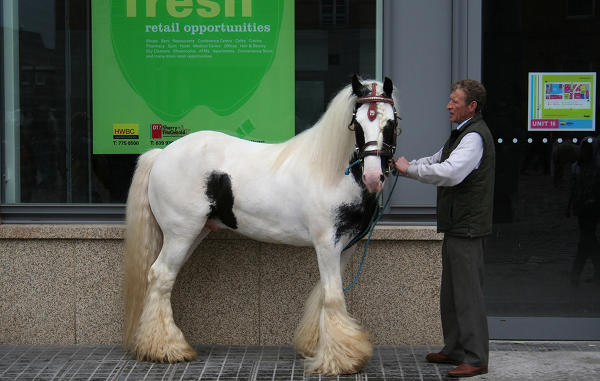
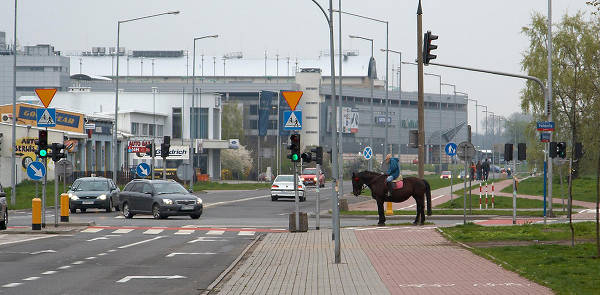
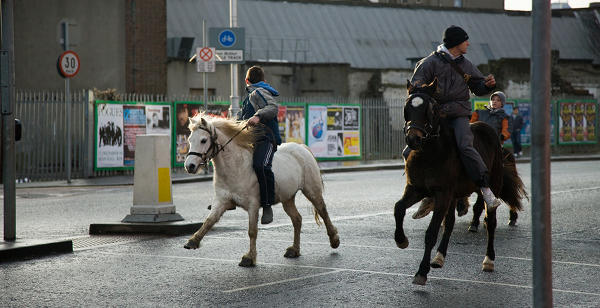
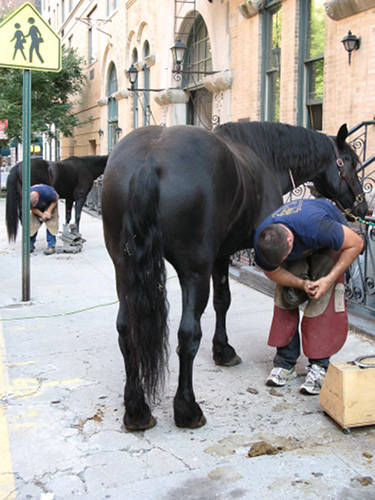
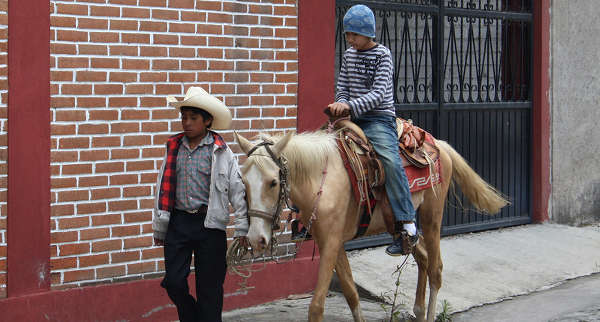
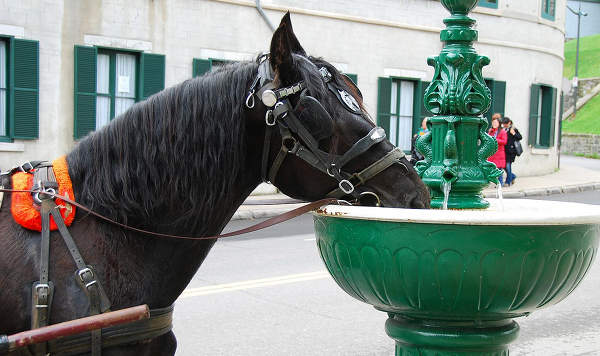
Concrete Jungle
Really horses don’t belong in the jungle, whether it’s concrete or the other kind. These images provide a very real ‘fish out of water’ metaphor for the animals pictured…poor things. Be sure to take a look at part 1 for more urban horses.

Why are none of the ones riding not wearing helmets? And 2 of them are cantering down the road, how freaking dangerous?!
Heh I think that particular photo was taken in Ireland during the Smithfield Fair, which is a monthly horse market in Dublin. From what I understand it’s a rather loud & rowdy event overall. Of you are interested, here are more images of the Irish riding in the streets with no helmets. 😉
The second picture shocked me most… People coming up to your horse like that, would you feel like they are safe? I’m not pointing fingers but there are high crime rates in cites, think about what could happen to these horses.
I think it is ‘ok’ to keep your horse in the city, as long as they are in a safe, secure and private location with at least some pasture and running around space.
The third horse down, the Belgian – his name is Vernon. He works for Philadelphia Carriage Company, and has for many years now (8 or 10 years now?).
He used to be a farm horse, but he got his leg caught in some barbed wire, and his owner didn’t want to pay for a vet or waste time taking care of a horse who couldn’t work. He was run through the New Holland auction and wound up in the kill pen. He was picked out of the kill pen by the carriage company because he was super friendly and came right over to them at the fence… His life was saved because he went to live in the big city…
Vernon loves to give kisses and he enjoys his job.
Thanks again for sharing your knowledge of these city animals. I like to hear stories of successful rescues. Vernon looks healthy and it’s a great shot!
I think it’s great that our culture (the USA) still puts horses to work instead of to death. Horses fit in plenty of environments and can live long productive lives as long as they are maintained properly. I know Vernon, and many other horses that live and work in Philadelphia and have a pretty good time with it. Sure, they have to put in five days a week at work, but the shifts are no longer than nine hours (usually six) out of a 24 hour day, the rest of which they spend eating, and they all get between five weeks and two months of turnout in a pasture each year, and this is documented by the companies in their records.
to Stef-
During my time as a rider herding cattle, the only kind of helmet I wore was a broad brimmed felt hat. As long as you know how to stay on top, it’s not too important.
I just wanted to add a quick note about how beautiful these photos are. Some of the best examples of photography show situations that many people have never seen before…like a horse in the city. The thing is, without these horses in an urban setting, the people in that same urban setting, might have no opportunity to see and find value in a horse.
I believe that horses belong where they can be of value to our culture and our lives. If they are not in these places, they become something mythical and unseen. If children in the city never see a horse, what will make them love the horses? How will we have future generations to protect and care for and enjoy these animals if we limit them to wide open pastures? How long will the pastures be wide open?